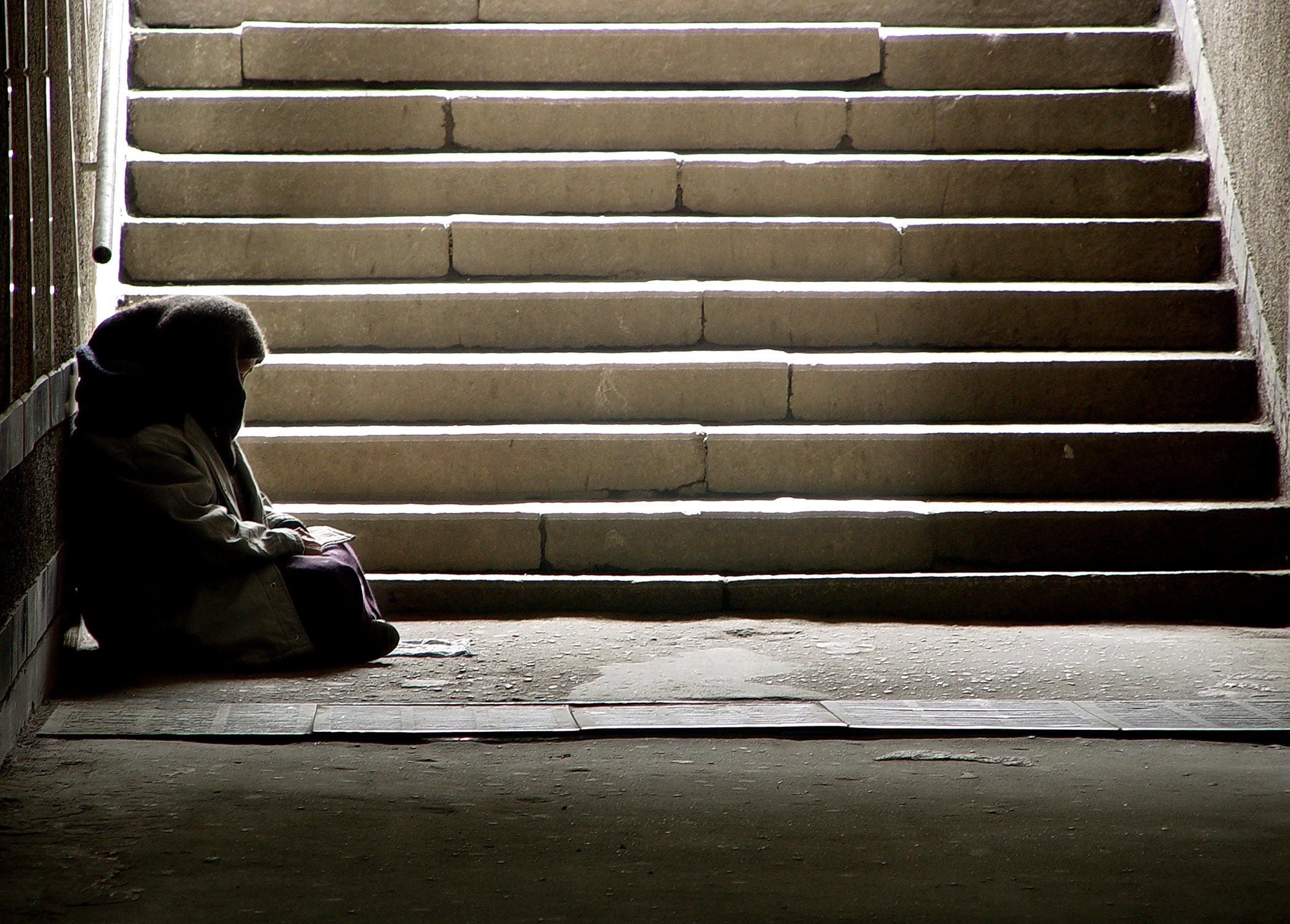I lived in shoddy ‘supported accommodation’ for a year – this is what it was like
I was one of the hidden homeless, making desperate phone calls to the council and women’s refuges from a friend’s sofa

Last week, The Independent released findings from an investigation into “exempt accommodation”.
The new findings are part of a bigger trend, where unscrupulous social landlords are taking advantage of benefit loopholes to charge extortionate rents for poor-quality accommodation.
I know some of the sector’s problems first hand. For over a year, I lived in a West Midlands “exempt accommodation” housing scheme. The scheme used converted family homes as “flats” for vulnerable girls and women, mostly in our teens to early twenties. Most “residents” were from racially minoritised communities; some were refugees. Histories of mental health difficulties and experiencing abuse were common.
Each girl had a humble studio bedroom with access to basic shared bathroom and kitchen facilities. The idea behind charging people on benefits hundreds a week in rent is that housing benefit, paid for by the local council, covers the cost. Like other “supported accommodation” schemes, the provider was allowed to do this because of the “support” provided. The problem is that this “support” felt more like surveillance.
There was a central “office” onsite, manned with staff night and day to watch our comings and goings. Staff had keys to our rooms and performed random room checks. When you combine that with a habit among staff of referring to us by flat/room number (e.g. “B3”) rather than our names, it all felt a little too Orange is the New Black for my liking.
The lack of privacy was combined with ignorance of young women’s basic needs. We were constantly scolded over petty “health and safety” violations. Yet there weren’t proper bins for disposing of menstrual products. CCTV was all over the scheme, and I’d have rather died than get a reputation for being a weirdo carrying used tampons around my flat, so I flushed them instead.
Like many people, I’d ended up in exempt housing by accident. I was one of the “hidden homeless”, making desperate phone calls to the council and women’s refuges from a friend’s sofa. Refuge workers were sympathetic. The council, less so. Ultimately, neither housed me: Women’s Aid say 57 per cent of referrals to refuges were rejected in 2019-20, mostly due to limited capacity. In March 2021, 17,307 households were waiting for a council property in Birmingham. It’s this context that’s fuelled the explosion in exempt accommodation.
When I moved in, I’d already experienced what felt like a lifetime of being shuttlecocked between gatekeepers tasked with sizing up my needs. Eventually, I received a call from a worker at a women-only accommodation scheme. I didn’t know what exempt accommodation was, yet. But when she asked me to travel there – to an area I’d never even visited in my life – I was too worn down to ask many questions. Plus, I knew that if I didn’t jump at the opportunity for a stable roof over my head, I could end up in serious trouble. I moved into my room that day.
To keep up to speed with all the latest opinions and comment, sign up to our free weekly Voices Dispatches newsletter by clicking here
My bedroom was visibly dirty from the previous occupant. Whoever lived there even seemed in the rush to have left behind various belongings which were unceremoniously disposed of by management. I wish I could say I showed some self-respect by asking for a room that had been professionally cleaned. My move-in was was during the pandemic, before the vaccine rolled out. But homelessness teaches you to be “grateful” for any crumb of “help” offered, no matter how degrading it is. Beggars can’t be choosers, so they say. And as far as councils are concerned, refusing “suitable” accommodation can see you written off as “voluntarily homeless”.
Another nail in the coffin of my dignity was my “license agreement” – the poor [wo]man’s version of a rental contract, spelling out my complete lack of rights. I could be kicked out for any reason, without a Section 21 notice. And if that wasn’t bad enough, the agreement also authorised staff to routinely open my mail, because apparently, I couldn’t be trusted with my own post. In theory, supported accommodation is supposed to help people gain independence. But the scheme I lived in was full of overbearing rules which seemed to encourage the opposite.
Many people have far worse experiences of living in homeless accommodation than I did, both within the “exempt” sector and out of it. A homeless Londoner I met online during the pandemic was placed by his local authority in what he described as a “meth hotel”, where the other homeless people there – grown men – used hard drugs. He was a teenager at the time. Compared to him, I lived in relative comfort and safety. But unlike him, I was formally considered to be receiving “support”.
This needs to change. Security is not support, unless you think that McDonalds customers are receiving “support” because there are bouncers. An occasional phone call from a “support worker” doesn’t cut it, either. Being homeless is not a crime. So let’s stop treating it like one.

Join our commenting forum
Join thought-provoking conversations, follow other Independent readers and see their replies